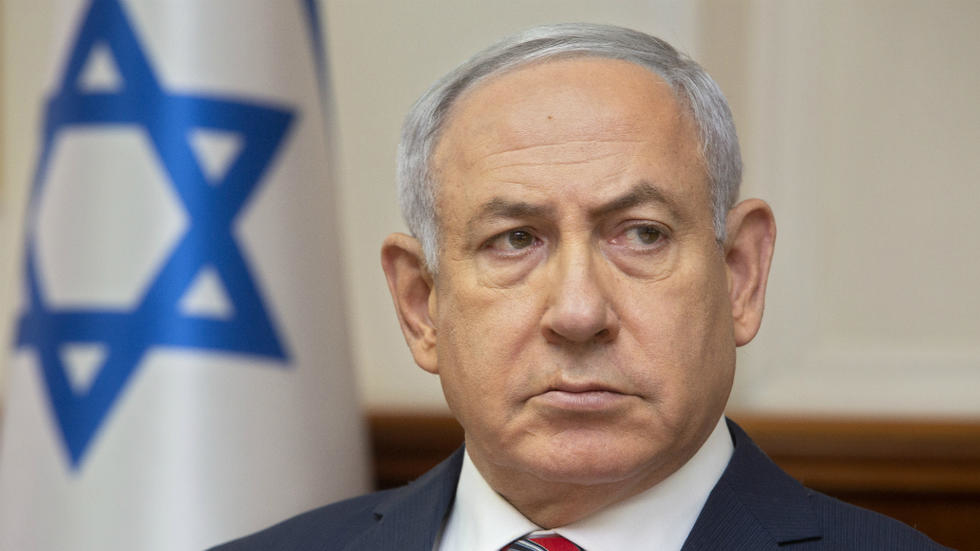The Palestinians rejected the plan, arguing that it would not give them a viable state or address their long-standing grievances, including over the loss of key pieces of land.
In addition, they would be shut out of control over key holy sites in Jerusalem, and Israel would surround them entirely and effectively limit their sovereignty. Analysts and lawmakers called the plan racist and warned it would be a cementing of apartheid-style rule.
Israeli-Arab lawmaker Ahmad Tibi, leader of the Arab Taal party, described the plan as "a significant intensification of apartheid."
"The international vision of a two-state solution collapses, and Trump and Netanyahu are responsible for its collapse," he said.
Speaking on Fox and Friends on Wednesday, Netanyahu warned the Palestinians that they will not get a better deal than the one proposed by his administration. "This is the opportunity of a lifetime for Israel, for the Palestinians and for peace," he said.
Jared Kushner, Trump's son-in-law and an adviser on the Middle East, had a similar warning for the Palestinians, whom he accused of "playing the victimhood card" for 25 years.
"The Palestinian track record is perfect in not being able to make a deal, but this opportunity is available only because Of President Trump's leadership," he said on the Fox and Friends broadcast.
After calls by the Palestinian leadership for protests, there were isolated strikes and demonstrations in the West Bank and Gaza Strip on Wednesday, with three people in a settlement east of Ramallah injured by Israeli gunfire, according to a Health Ministry spokesman.
Right-wing Israeli Defence Minister Naftali Bennett had warned earlier Wednesday that any delays in applying sovereignty could lead the country to miss its opportunity, especially if it waited until after elections on March 2.
"Last night, history knocked on our door and offered us a one-time opportunity to apply Israeli law to all the settlements in Judea and Samaria [the West Bank] and the Jordan Valley," Bennett said.
Tourism Minister Yariv Levin, a member of Netanyahu's Likud party, had told Army Radio that a vote would be held in the cabinet soon, but not on Sunday - the day cited by Netanyahu during a press briefing in Washington on the day the long-awaited plan was unveiled.
"We want to introduce the motion to annex as quickly as possible, but we are going to have to complete work on several documents in order to allow the motion to be introduced," Levin told the broadcaster.
The pro-Netanyahu paper Israel Hayom reported that the cabinet vote is now planned for next Tuesday.
Israel's attorney general, Avichai Mandelblit, said on Tuesday night that careful consideration must be given to whether a transitional government has the authority to annex parts of the West Bank.
According to the Israel Democracy Institute, a transitional government can, in theory, make such a decision. However, Mandelblit may rule that legal precedent dictates otherwise. The chances of the decision being approved by the country's Supreme Court are slim.
Israel has been led by a transitional government since December 2018 that has continued as no coalitions were forged after votes in April and September. An unprecedented third election in a year will be held in March.
In an interview with CNN after the plan was unveiled, Kushner also said that he didn't believe annexation would happen this weekend.
In addition, they would be shut out of control over key holy sites in Jerusalem, and Israel would surround them entirely and effectively limit their sovereignty. Analysts and lawmakers called the plan racist and warned it would be a cementing of apartheid-style rule.
Israeli-Arab lawmaker Ahmad Tibi, leader of the Arab Taal party, described the plan as "a significant intensification of apartheid."
"The international vision of a two-state solution collapses, and Trump and Netanyahu are responsible for its collapse," he said.
Speaking on Fox and Friends on Wednesday, Netanyahu warned the Palestinians that they will not get a better deal than the one proposed by his administration. "This is the opportunity of a lifetime for Israel, for the Palestinians and for peace," he said.
Jared Kushner, Trump's son-in-law and an adviser on the Middle East, had a similar warning for the Palestinians, whom he accused of "playing the victimhood card" for 25 years.
"The Palestinian track record is perfect in not being able to make a deal, but this opportunity is available only because Of President Trump's leadership," he said on the Fox and Friends broadcast.
After calls by the Palestinian leadership for protests, there were isolated strikes and demonstrations in the West Bank and Gaza Strip on Wednesday, with three people in a settlement east of Ramallah injured by Israeli gunfire, according to a Health Ministry spokesman.
Right-wing Israeli Defence Minister Naftali Bennett had warned earlier Wednesday that any delays in applying sovereignty could lead the country to miss its opportunity, especially if it waited until after elections on March 2.
"Last night, history knocked on our door and offered us a one-time opportunity to apply Israeli law to all the settlements in Judea and Samaria [the West Bank] and the Jordan Valley," Bennett said.
Tourism Minister Yariv Levin, a member of Netanyahu's Likud party, had told Army Radio that a vote would be held in the cabinet soon, but not on Sunday - the day cited by Netanyahu during a press briefing in Washington on the day the long-awaited plan was unveiled.
"We want to introduce the motion to annex as quickly as possible, but we are going to have to complete work on several documents in order to allow the motion to be introduced," Levin told the broadcaster.
The pro-Netanyahu paper Israel Hayom reported that the cabinet vote is now planned for next Tuesday.
Israel's attorney general, Avichai Mandelblit, said on Tuesday night that careful consideration must be given to whether a transitional government has the authority to annex parts of the West Bank.
According to the Israel Democracy Institute, a transitional government can, in theory, make such a decision. However, Mandelblit may rule that legal precedent dictates otherwise. The chances of the decision being approved by the country's Supreme Court are slim.
Israel has been led by a transitional government since December 2018 that has continued as no coalitions were forged after votes in April and September. An unprecedented third election in a year will be held in March.
In an interview with CNN after the plan was unveiled, Kushner also said that he didn't believe annexation would happen this weekend.









 Home
Home Politics
Politics











